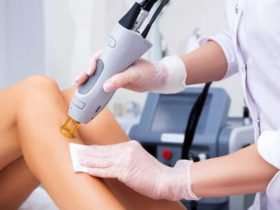It is widely known that argan oil is beneficial for our bodies and it is used a lot in beauty products like shampoo, cream as well as a serum. But, what is it? Where does it come from? Why is this oil so popular among beauty products? To begin with, argan oil is a natural oil extracted from the nuts of the Argania spinosa tree, which is a native tree to Morocco. The extraction process implies removing the outer layer of the fruit, cracking the hard shell, and finally extracting the small kernels from the seeds inside. This multifaceted oil has been used in traditional Moroccan cuisine and as a cosmetic product for centuries.
What Is Argan Oil Good For?
Argan oil is known because of its beneficial compounds which include fatty acids and antioxidants. It is commonly used for both culinary and cosmetic purposes since it has a lot of benefits.
As regards the skincare use of this oil, argan oil is popular in the beauty industry and it is used in various cosmetic products, such as moisturizers, shampoos, conditioners, and facial oils. The oil is known for its hydrating and nourishing properties, making it beneficial for the skin, hair, and nails.
This amazing oil is rich in vitamin E, which has antioxidant properties that help protect the skin from environmental damage. It is also believed to have anti-aging effects and can be used to moisturize and soften the skin.
Moreover, many people use argan oil as a hair treatment to promote shine, reduce frizz, and improve the overall health of the hair. It can be applied directly to the hair or incorporated into hair care products.
Last but not least, its moisturizing properties make it beneficial for strengthening and nourishing nails. It is often used as a cuticle oil to promote healthy nails.
It is important to note that when using argan oil beauty products, it is advisable to choose high-quality, pure, and organic products to ensure the best results. Additionally, individuals with nut allergies should exercise caution, as argan oil is derived from the nuts of the argan tree.
Most Common Benefits Of Argan Oil
The list of argan oil benefits for the skin is quite long and varied and can be a valuable addition to your beauty routine. Among the potential benefits that should be highlighted, we find the following:
- Moisturization: Argan oil is rich in fatty acids, particularly oleic and linoleic acids, which help hydrate and moisturize the skin. It can be especially beneficial for individuals with dry or dehydrated skin.
- Antioxidant protection: The high vitamin E content in argan oil gives it antioxidant properties. Antioxidants help protect the skin from free radicals, which can contribute to premature aging and damage caused by environmental factors.
- Anti-aging properties: Regular use of argan oil may help reduce the appearance of fine lines and wrinkles. The oil’s antioxidant content, combined with its ability to guarantee skin elasticity, can contribute to a more youthful-looking complexion.
- Acne treatment: Contrary to common belief, argan oil may be suitable for some individuals with acne-prone skin. It has anti-inflammatory properties that can help soothe irritated skin. Additionally, the linoleic acid in argan oil may help regulate sebum production, potentially reducing the risk of clogged pores.
- Scar healing: Argan oil has some regenerative properties that may aid in the healing process of scars and blemishes. It can help improve the appearance of scars and promote a more even skin tone.
- Protection against environmental damage: The oil may form a protective barrier on the skin, helping to defend it from environmental pollutants and UV radiation. This can be really beneficial to maintain the skin’s overall health.
- Gentle exfoliation: Although it cannot be used as an exfoliant, the tocopherols (vitamin E) in argan oil can contribute to gentle exfoliation, helping to remove dead skin cells and promote a smoother complexion.
In addition to all these benefits, argan oil can be used in two different ways: directly to the face or mixed with your favorite moisturizer. It is generally suitable for all skin types, but it is always recommended to do a patch test, especially if you have sensitive or allergy-prone skin. Additionally, remember that individual skin reactions can vary, so it is essential to monitor how your skin responds to the product. Users must remember that it is highly advisable to ask a professional in case of doubts or any skin reaction.















